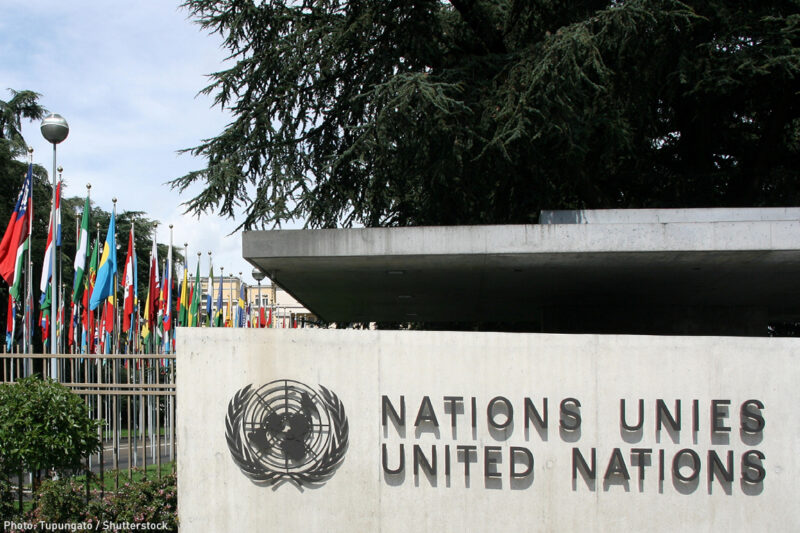The ACLU Is at the UN Tomorrow to Testify on the Horrific Human Rights Record of US Private Prison Companies


On April 13, private prison company GEO Group announced its first new contract to detain immigrants under the Trump administration: a 1,000-bed detention center that will be built in Conroe, Texas, just north of Houston and next door to an existing GEO Group detention center.
The Conroe contract is only the beginning of what promises to be an enormous, multi-year boondoggle for private prison companies. Since Trump’s election, companies like GEO Group and the Corrections Corporation of America — which last year borrowed a tactic from the likes of Phillip Morris and Blackwater to rebrand itself CoreCivic — have seen their stock prices skyrocket.
The private prison business model depends on a simple formula: build prisons and then secure government contracts to fill them with people. This administration’s plans for mass deportations and a stepped-up war on drugs, combined with Attorney General Jeff Sessions’ rescission of the Justice Department’s August 2016 plan to phase out its private prison contracts, promise to vastly increase the flow of revenue-generating Black and brown people into private prisons. As The New York Times recently reported, CCA/CoreCivic and GEO Group are both currying favor with the administration in anticipation of this carceral future, as each company contributed more than $250,000 to the president’s inaugural celebration.
The United Nations, however, has taken notice.
The ACLU is one of several organizations from around the world that have been invited to testify to the U.N. about how to address barriers to accountability for private prison companies. I’ll be representing the ACLU Thursday morning at the United Nations headquarters in Geneva, Switzerland, for a meeting of a U.N. working group scrutinizing what the UN calls “private military and security companies” — a category that encompasses everything from mercenary companies, like Blackwater, to privatized police and security forces to privatized prisons. What unifies these disparate categories is that they all involve a government delegating some of its most dangerous and intrusive powers to a private, for-profit company.
When the government hands control of prisons over to for-profit companies, it creates serious gaps in accountability and transparency. Even publicly operated prisons are secretive institutions that tend to resist reform. They are, after all, places whose very purpose is to assert total control over the bodies of the people inside. But when a for-profit company runs the prison, this inherently closed nature functions to shield the activities of an entity whose primary duty is to deliver value to its shareholders.
This lack of accountability is especially dangerous because of the horrifying record of abuse and neglect in the private prison industry. Last year, for example, the Justice Department’s inspector general found that private prisons with federal prison contracts delivered deficient medical care, had higher levels of violence than regular federal prisons, and misused solitary confinement as overflow space.
For these reasons, the ACLU is staunchly opposed to prison privatization, and we’ll continue working to expose the harm to human rights caused by the Trump administration’s embrace of companies like CCA/CoreCivic and GEO Group.
Stay informed
Sign up to be the first to hear about how to take action.
By completing this form, I agree to receive occasional emails per the terms of the ACLU's privacy statement.
By completing this form, I agree to receive occasional emails per the terms of the ACLU's privacy statement.

